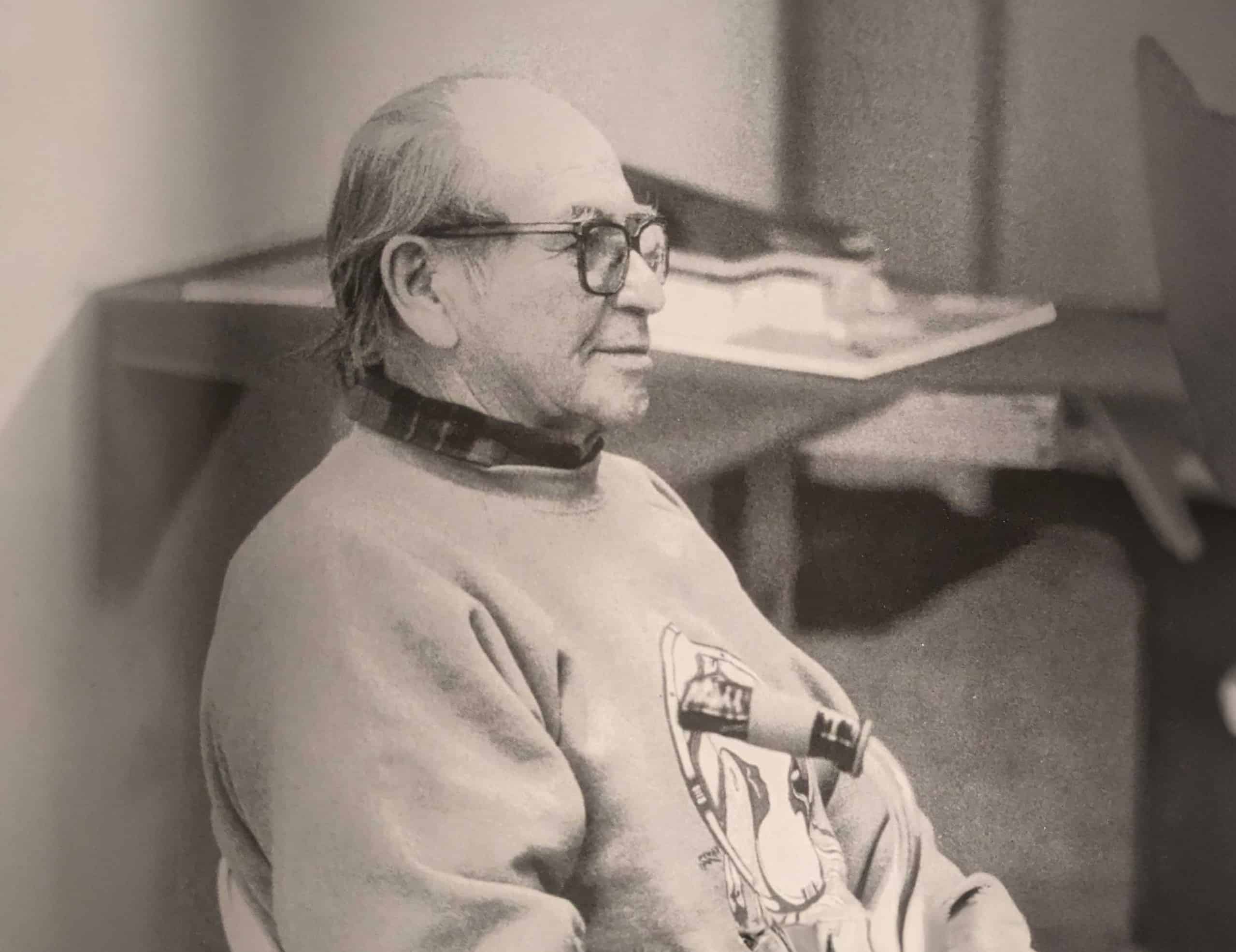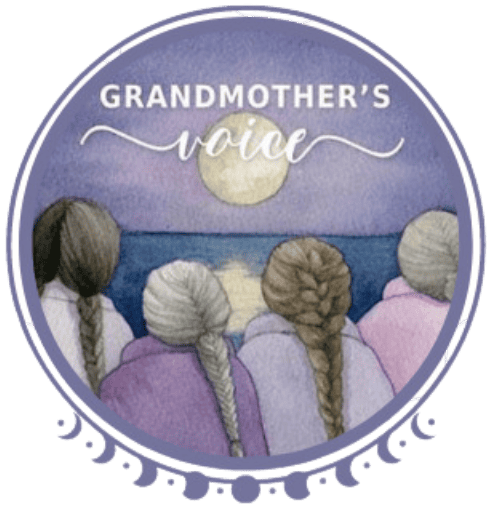In the Presence of Wisdom: Voices of the Land
Taken from the foreword of Voices of the Land, 1993. When the Elders met at the gathering “The Voice of

Mino-Bimaadziwin, an Anishinaabek worldview that translates to “living the good life,” is more than just a philosophy; it’s a profound way of understanding existence and our roles within it. These teachings have been shared by Knowledge Keeper Zhawanobinaisseekwe, an Elder from Nipissing First Nation, who carries the wisdom of the Makwa dodem – Bear clan and is a Niswe Midewiwin – a 3rd degree Midewiwin Traditional Knowledge Keeper. At the heart of Mino-Bimaadziwin lies the belief that everyone receives four precious gifts before birth: Kindness, Truth, Generosity, and Strength/Belief. In this worldview, the circle of life is guided by seven transformative stages, each holding unique teachings and responsibilities.

1. The Good Life (Birth to age seven):
The journey begins with the Good Life, a sacred period encompassing the first seven years of a child’s life. During this stage, Elders, grandparents, and the extended family play a crucial role, supporting parents in nurturing the child. It is a time of unconditional love and discipline, fostering strength and confidence in the child. These foundational teachings begin early and set the stage for a life rooted in understanding and respect.
2. The Fast Life (Ages 7 to 14):
The Fast Life marks the transition into adolescence, a time of preparing for a significant event – the four-day vision quest. During this period, young people learn about their roles and responsibilities as they mature. Rites of passage ceremonies, guided by the guidance of Elders and mentors, nurture confidence and healthy self-esteem, reaffirming the child’s transition into adulthood.
3. The Wandering/Wondering Life (Ages 15 to 21):
This stage, often referred to as the “Wandering Years,” is a time of exploration and self-discovery. Young people begin to ask questions and challenge concepts. They travel, meet teachers, and gain new experiences. It’s a period of testing limits and understanding the consequences of their choices, shaping their character and outlook.
4. The Truth Life (Ages 21 to 28):
During the Truth Life, young adults consolidate their beliefs and values. Guided by Elders and mentors, they find their true selves, recognizing their gifts and strengths. It’s a phase where they evaluate the knowledge handed down by their parents, seeking to verify and develop their understanding. They also start to become teachers, passing on knowledge to the younger generation.
5. The Planting/Planning Life (28 to 35 years):
The Planting/Planning stage is a time of nurturing the seeds sown in previous stages. Young adults begin to execute the plans and visions they’ve developed, fostering personal growth and a sense of purpose.
6. The Doing Life (35 to 49 years):
The Doing stage is where individuals put into practice the wisdom they’ve gathered throughout their life’s journey. It’s a time to follow through with the Creator’s plans and fulfill their purpose in this world.
7. The Teaching/Elder/Power Life (Age 49 and onwards):
The Elder stage commences at age 49. During this period, individuals embrace responsibilities to their family, clan, and community. They return to teach the younger generation, continuing the circle of knowledge by passing on their wisdom.
Conclusion:
Mino-Bimaadziwin, the seven-stages of living the good life, provides a profound framework for existence, personal growth, and community harmony. It’s a reminder of the interconnectedness of generations and the responsibilities we hold at every stage of life. These teachings emphasize the importance of kindness, truth, generosity, and strength, forming a timeless guide for both Indigenous and non-Indigenous communities to nurture a life rooted in respect, understanding, and shared wisdom.
Photo: Elder sharing knowledge with Youth. Photo by Rupert Mackie https://www.concordia.ca/cunews/main/stories/2019/11/19/concordia-professor-uses-land-based-learning-to-connect-indigenous-youth-to-cultural-teachings.html
Taken from the foreword of Voices of the Land, 1993. When the Elders met at the gathering “The Voice of

Adapted from Association of Friends, August 1995 Art, a lifelong resident of Birch Island, exemplifies commitment and community engagement. Married to
Grandmother’s Voice: Creating opportunities for Indigenous community members to share their teachings, healing practices and traditional handicraft creation with the broader community.
Elevating Indigenous Knowledge and Culture across Halton Region has been the foundation of our organization. Collectively, we continue to serve as a beacon for building awareness and fostering connectedness. Rooted in our Nation’s origins, we are dedicated to enhancing capacity and illuminating the landscape of Indigenous social services and determinants of health. Join us on this transformative journey as we strive to strengthen bonds, raise awareness, and contribute to the well-being of our communities.
Grandmother’s Voice International Business #799454954RC0001


© 2024 All Rights Reserved.